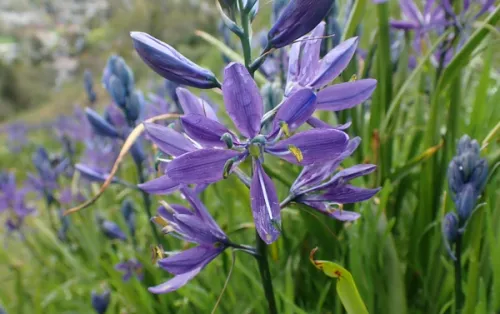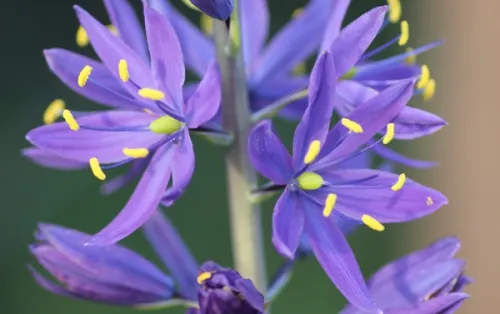Back to Glossary
Common Camas
Camassia quamash
Common Camas is a perennial bulb native to North America, particularly celebrated for its cultural significance and ecological value. It grows 1 to a little over 2 feet tall, producing clumps of grass-like leaves that provide a lush, green backdrop in early spring. As spring progresses into early summer, tall spikes of vivid blue to deep purple flowers emerge, each composed of six-petaled star-shaped blooms. These flowers are not only a favorite among gardeners for their striking appearance but also attract bees, butterflies, and other pollinators. Common camas thrives in full sun to partial shade and prefers moist, well-drained soils, making it ideal for rain gardens, water edges, and perennial borders.
Details
Height12” - 30”
Spread9"
Bloom SeasonMay – June
Soil Types
Clay
Loam
Sand
Soil Moisture
Medium
Moist
Sun Exposure
Part Sun
Full Sun
Range Map
Available
Not available
Ecological Benefits
Maintenance Tips
- Prefers consistently moist soil; water regularly, especially during bloom time and less frequently as the plant enters dormancy post-flowering.
- No pruning necessary. Allow foliage to die back naturally to feed the bulbs for the next season.
- Thrives in loamy, well-drained soil. Can tolerate heavier clay soils if drainage is adequate.
- Apply a light mulch to conserve moisture and protect bulbs in colder regions.
- Monitor for bulb rot in overly wet conditions and pest activity. Divide clumps every few years in autumn to maintain vigor and increase blooms.





